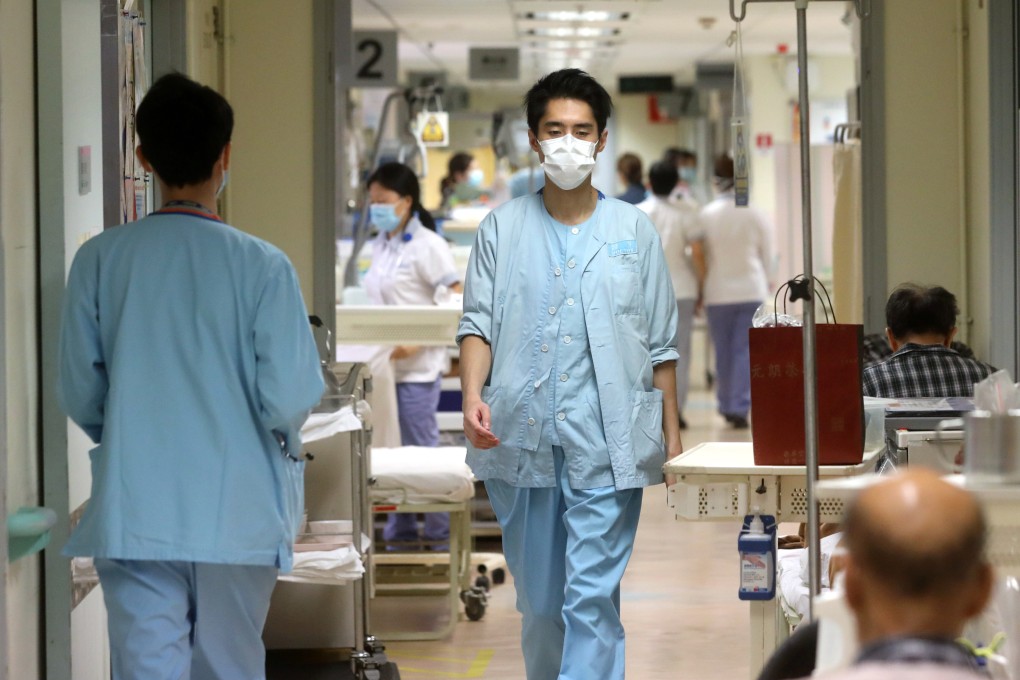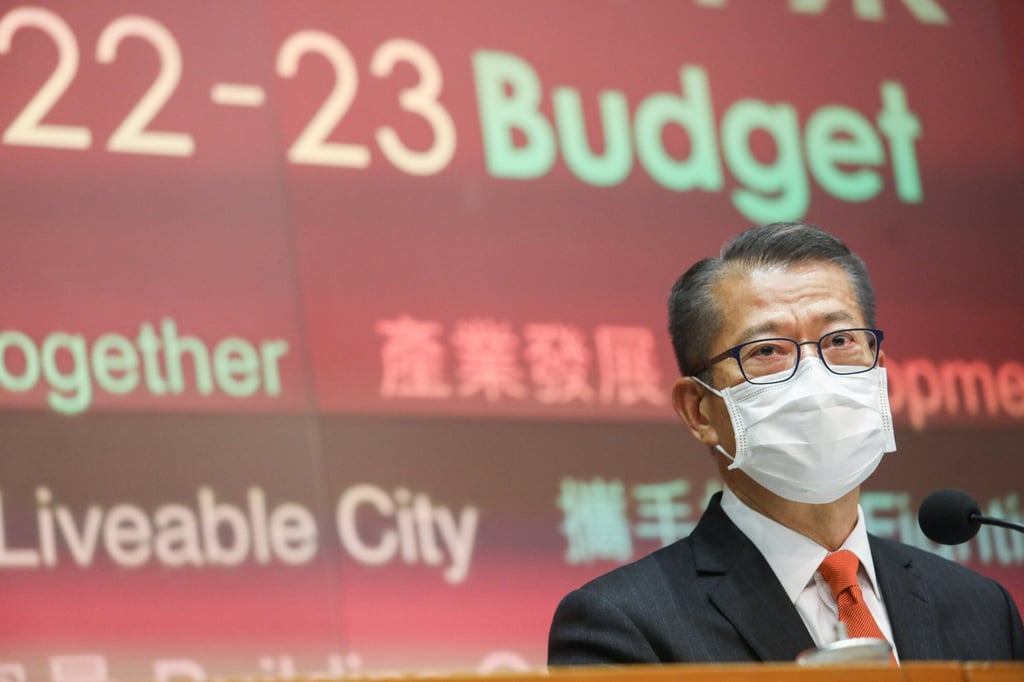Budget 2022-23: Hong Kong to inject more resources into nurturing local talent in fintech and health care, addressing economic imbalance
- Finance chief Paul Chan pledges to create better job opportunities for young people, diversify city’s economy
- Up to HK$400 million each year earmarked for boosting training in medical sector, while HK$43 million set aside for professional development of fintech players

Hong Kong is putting more resources into nurturing local talent in fintech and health care to address the brain drain in these fields and the imbalance in the city’s economic development.
“Amid the adversities, many issues have emerged, such as the imbalance in economic development and inadequate opportunities for young people to give full play to their strengths, as well as the distribution of economic gains, which have scope for improvement,” Chan said.

These issues had implications for the city’s social harmony and stability in the long run, and needed to be resolved step by step with the concerted efforts of the community, Chan said.
He pledged to pave the way for nurturing local talent in the fintech, information technology and health care industries, while all residents aged 18 and above could enjoy higher subsidies for continuing education.
To cope with the shortage of health care workers, Chan said up to HK$400 million (US$51.2 million) each year would be allocated to enhance training for medical professionals starting from the academic year in 2023.
It includes providing subsidies for health care students to enrol in related programmes and adding 500 more undergraduate places for courses that are now partially financed by the government.